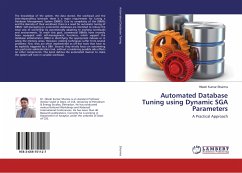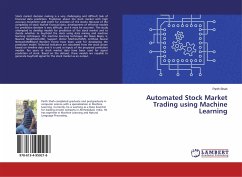The knowledge of the system, the data stored, the workload and the inter-dependency between them is a major requirement for tuning a Database Management System (DBMS). Due to complexity of the DBMSs and the diversity of their workload, there is a need for automatic tuning of DBMS. Self-managing (or autonomic) databases are intended to reduce the total cost of ownership by automatically adapting to evolving workloads and environments. To reach this goal, commercial DBMSs have recently been equipped with self-management functions, which support the database administrator (DBA) in identifying the appropriate indexes or in sizing the memory areas. However, existing techniques suffer from several problems: First, they are often implemented as off-line tools that have to be explicitly triggered by a DBA. Second, they strictly focus on automating one particular administration task, without considering possible side-effects on other components. This book defines the automated manner to make the system self tune in variable workload.
Bitte wählen Sie Ihr Anliegen aus.
Rechnungen
Retourenschein anfordern
Bestellstatus
Storno








